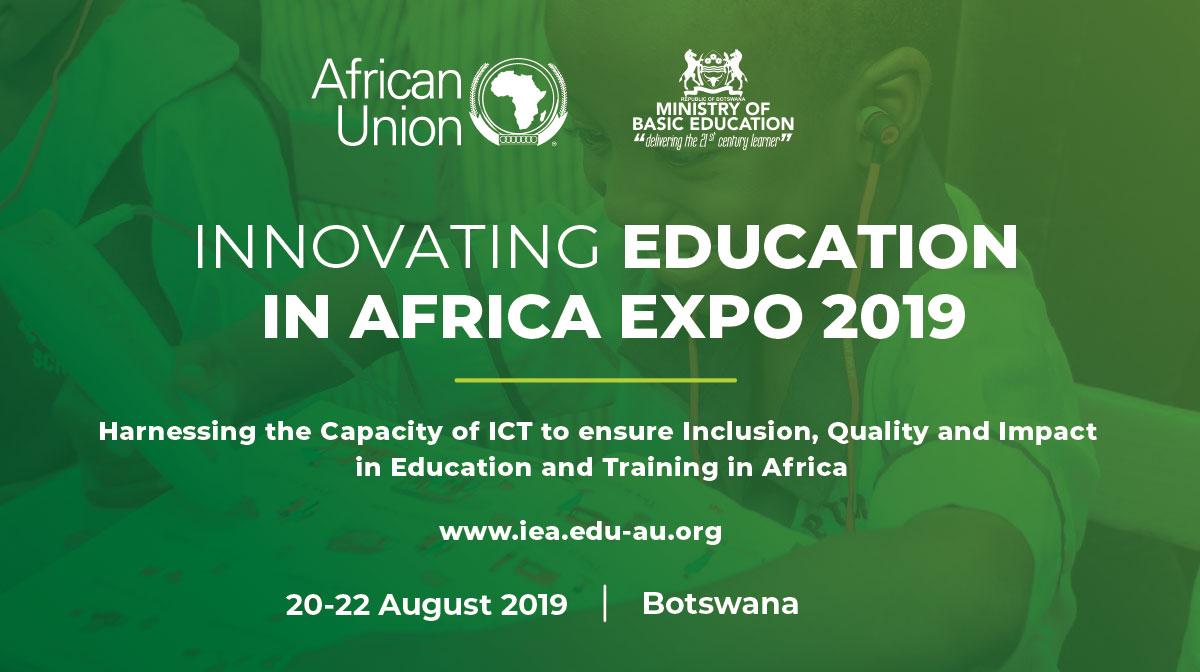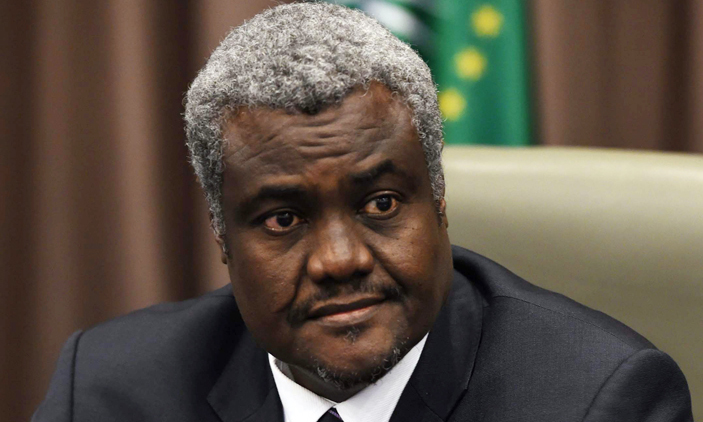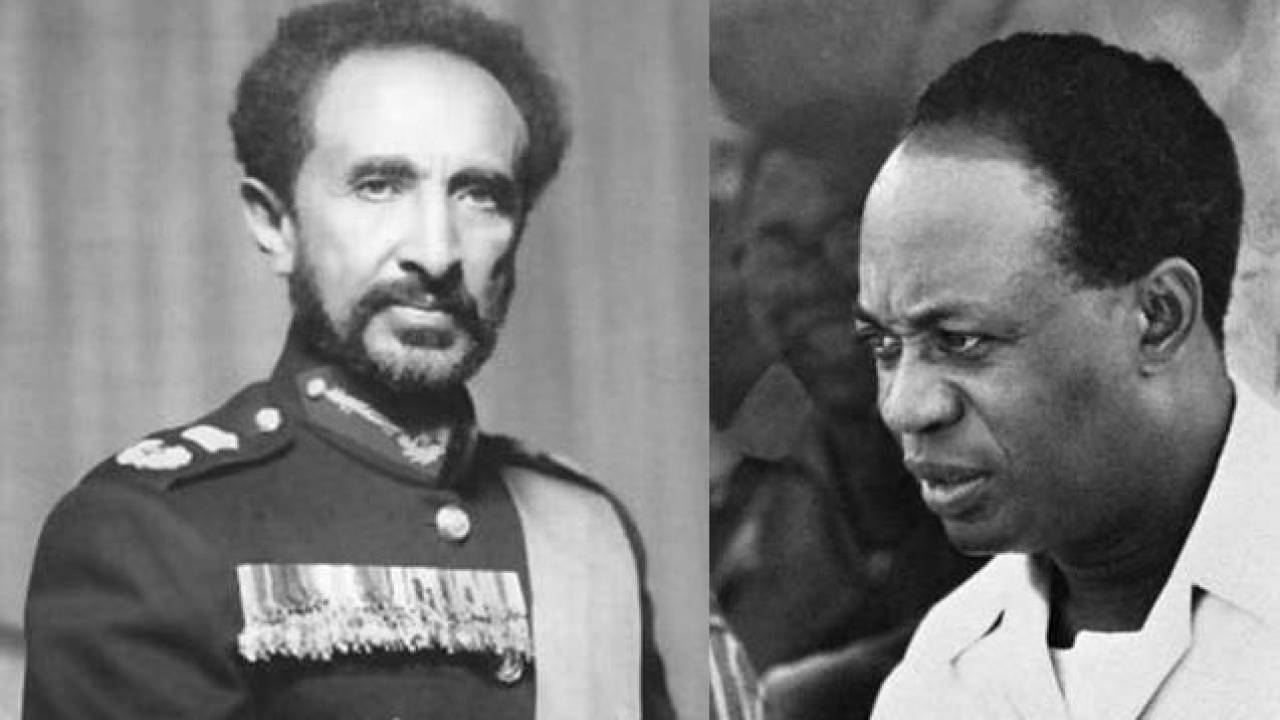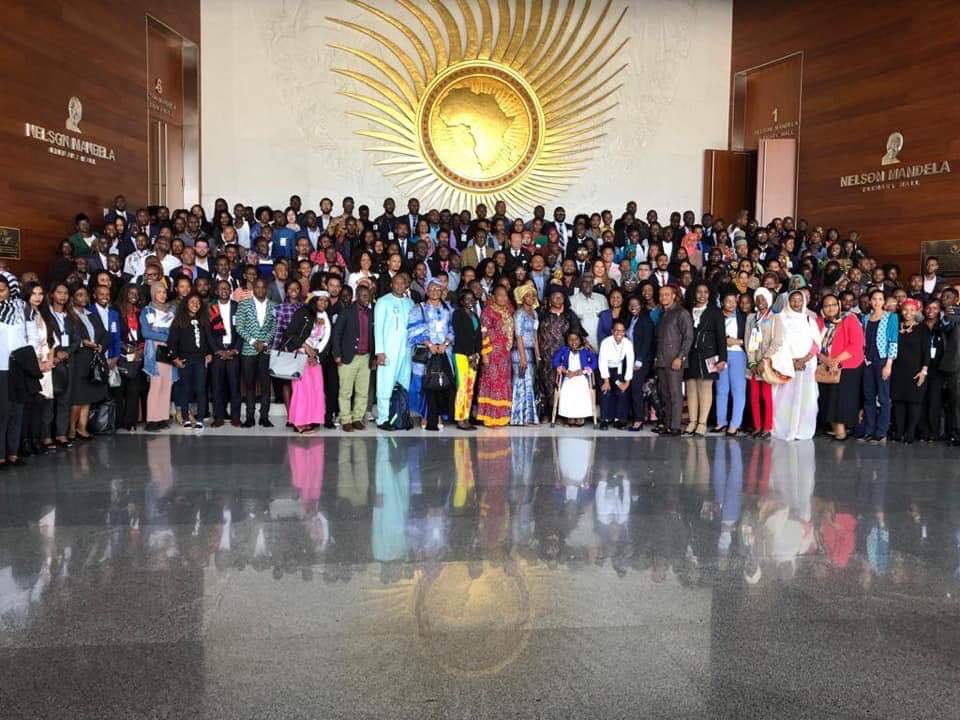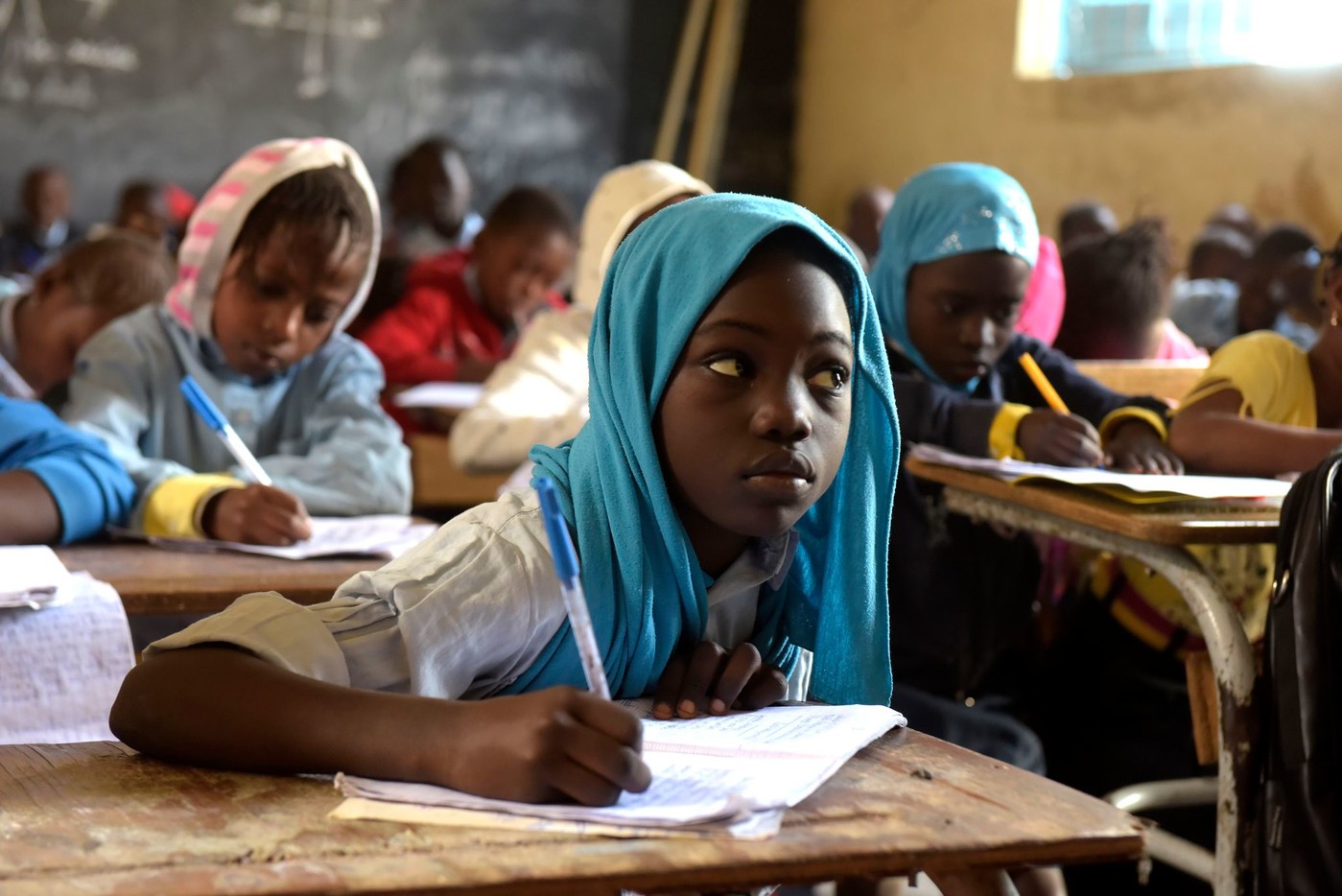Due to my hectic schedule in the past two months, when the CAFOR team was heavily engaged in meetings with partners and the diplomatic community in Addis Ababa and elsewhere around the globe, I was not able to send my message for the month of June. I am therefore combining one letter to cover the months of June and July 2019.
It is all about establishing and strengthening our partnership with the rest of Africa and the international community. Partnerships remain at the heart of our expanded vision and renewed commitment for our tasks in the area of education for development. CAFOR is fully committed to ensuring the full implementation of the global and continental agendas of the African Union. This involves translating and bringing to fruition the global Sustainable Development Goals (SDGs), the African Union’s Agenda 2063, the Science, Technology and Innovations Strategy for Africa (STISA 2024), the Continental Education Strategy for Africa (CESA 16-25), and the Continental Strategy for Technical and Vocational Education and Training (TVET) into country-level developmental and sectoral strategies for the development of the African continent.
In this respect, we can no longer afford to do business as usual if our countries in Africa are to succeed and yield maximum results as envisaged in these global and continental development and education agendas. The African Union’s Continental Education Strategy for Africa known as CESA 16-25 called for the establishment of a Coalition of Stakeholders as a strategy to amplify the case for prioritising and investing in education and ensuring better coordination and networking on matters related to education in Africa. To support the calls by the African Union to mobilise stakeholders to support the implementation of CESA 16-25, as well as other policy agendas, CAFOR is adding value by focusing on the communication dimension, which is its leverage point. It is also in this respect that CAFOR is striving to establish new and revitalised partnerships at varying levels for effective communication and participation of other entities in the implementation of the various African agendas. CAFOR believes that communication must be at the core of the business of planning education on the continent, ensuring that it is comprehensive and inclusive and that its style and content enhances dialogue in promoting all aspects of learning. Information exchange and communication between partners are essential to the achievement of well-managed, efficient education systems and training of good quality for all. Through information sharing, building consensus and confidence, advocacy and social mobilisation, and developing new strategies for communication, education policies can be better supported and their implementation facilitated among leaders, communities, civil society groups, the media, donors and cooperating partners, and other stakeholders, all of whom are recognising the need to work together.
A partnership is indeed a deliberate alliance between various equal actors from different sectors who agree to be engaged to reach a common purpose and satisfy a particular need that involves shared ventures, engagements, means and competencies. In the education for development sector, partnerships must be seen to include all sub-sectors and forms of knowledge, recognising the connections between education and other government departments, including planning, finance, labour, communications, and other social sectors. Also, partnerships between government and non-governmental organisations, the private sector, local communities, religious groups, and families. The right alliances contribute to the planning, implementing, managing and evaluating of education for development programmes.
In this context, CAFOR has recently welcomed several new members at the country level bringing the total number of countries active in CAFOR to 20 with an additional 25 countries to be registered by the end of 2019. The 20 participating countries are Benin, Botswana, Burundi, Cameroun, Congo Republic, Democratic Republic of Congo, Ethiopia, Gambia, Ghana, Kenya, Libya, Madagascar, Malawi, Morocco, Nigeria, South Africa, Swaziland, Tanzania, Uganda, and Zambia. The remaining countries will be inducted in CAFOR’s programmes in 2020, thus covering all the 55 member states of the African Union.
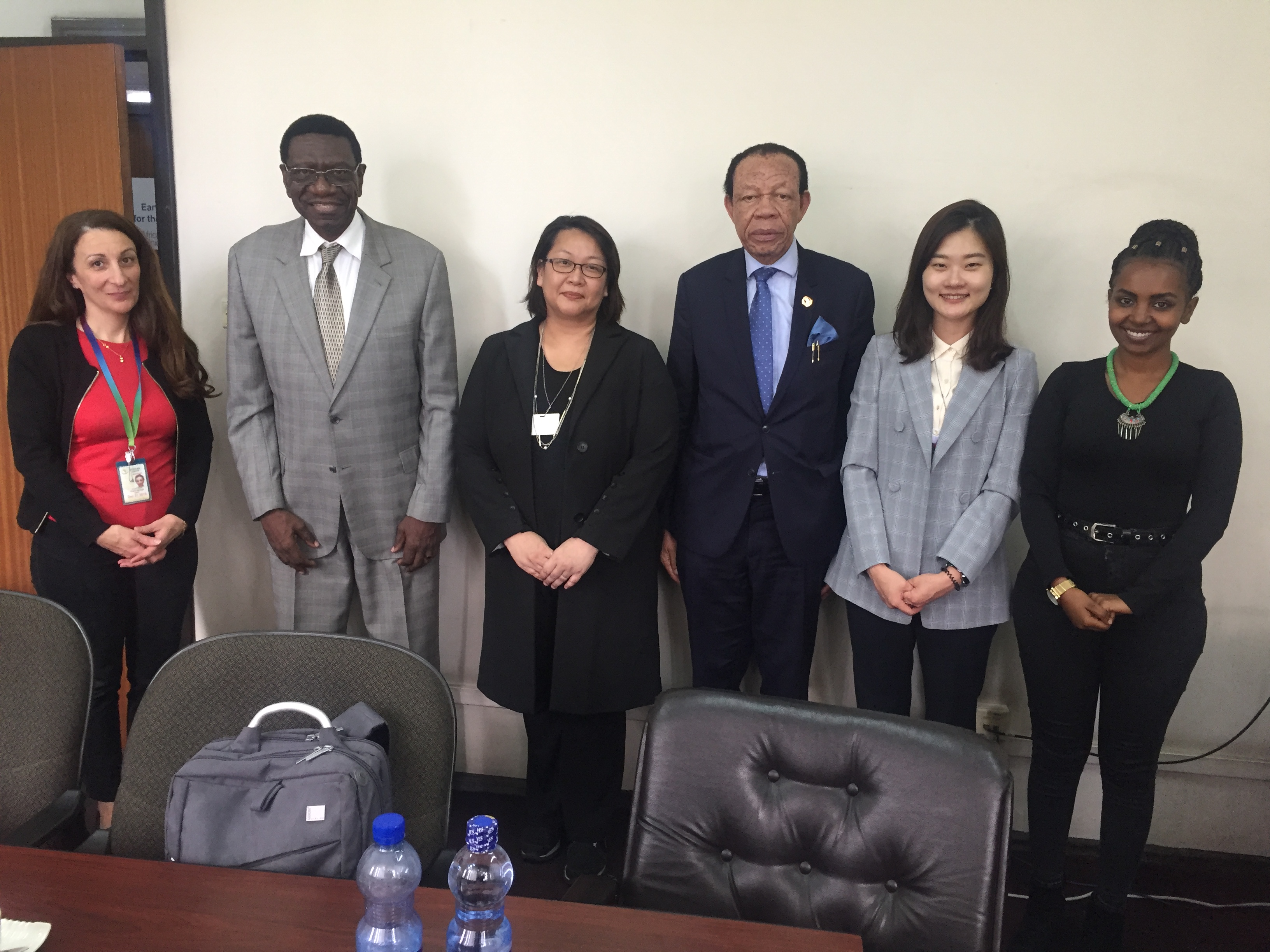
CAFOR staff meeting the Vice-President of the Korea-Africa Foundation Ms. Giyoun KIM and her Programme Officer Ms. Oh Hyekyung
During May and June 2019, staff members of CAFOR and I met with significant members of the diplomatic community and partners of the African Union. These include Ambassadors from Japan, Germany, Qatar, Korea, and the United Arab Emirates. We also met and discussed the African Union’s policy agendas which include Agenda 2063, the Science, Technology and Innovations Strategy for Africa (STISA 2024), the Continental Education Strategy for Africa (CESA 16-25), and the Continental Strategy for Technical and Vocational Education and Training (TVET) with various representatives accredited to Ethiopia and the African Union. These include representatives of the missions of USAID, the GIZ, the KOICA, the Korea-Africa Foundation and the EU delegation to the African Union. We also met with delegations from China, France, Kuwait, the League of Arab States, and Education Cannot Wait at UNICEF, New York. Dialogue on all the African Union agendas has also started through meetings with UNDP, UNESCO and UNFPA, and other United Nations agencies. In addition to all of these meetings, Her Excellency the Commissioner for Human Resources, Science and Technology, Prof. Sarah Anyang Agbor, sent a message to all the Ministries of Foreign Affairs of the 55 Member States of the African Union and their embassies in Addis Ababa to announce and explain the purpose of the Memorandum of Understanding signed between the African Union and CAFOR and has invited the member states of the African Union to provide the required support to CAFOR in the accomplishment of its mission at the country level.
CAFOR will continue to work closely with all its allies to enhance partnerships. We will work closely with African based organisations, including several youth-led organisations for the implementation of our communication strategy to advance the African Union policy agendas. CAFOR expects to enjoy the continued support of its partners and stakeholders as it continues to make a move to higher levels in its flight towards the “Africa We All Want”.



